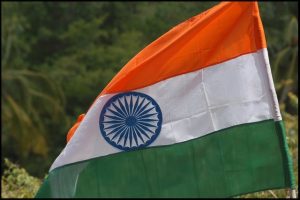An Indian media report suggests that India may be developing global indices measuring the state of democracy and press freedom around the world, as New Delhi continues to smart from two of the most well-known ones that recently raised serious questions about both the state of both in the country. According to a Hindustan Times article published on March 17, an internal note from the Indian Ministry of External Affairs suggests that it is contemplating a “global democracy index” as well as a “global press freedom index” that would be created by an “independent” Indian think tank.
“In its internal note, MEA also suggested that missions across the world could actively engage with NGO/institutes such as the RSF [Reporters Without Borders] and V-Dem and provide them with material which will help them put ‘India at the rightful place on the democracy and press-freedom index, in future reports’,” the newspaper said.
According to the article, MEA began discussions around the idea after the Prime Minister’s Office had forwarded it a letter late last year by a former chairman of Prasar Bharti – an autonomous organization under India’s Ministry of Information & Broadcasting – who concluded that India’s poor performance in global indices under the Modi government was unfair given that India was, officially, a secular state.
“In fact, many countries in the top ten nations [in these indices] have different forms of Christianity as their state religion, whereas the secular ideal is embedded in the preamble of our Constitution,” A. Surya Prakash’s letter, accessed by HT, said. (Prakash’s definition of what constitutes a democracy is available here.)
India was – for the first time in its history – marked as a “partly free” nation in the 2021 Freedom House index. “The government of Prime Minister Narendra Modi and its state-level allies continued to crack down on critics during the year, and their response to COVID-19 included a ham-fisted lockdown that resulted in the dangerous and unplanned displacement of millions of internal migrant workers,” it said. “…Rather than serving as a champion of democratic practice and a counterweight to authoritarian influence from countries such as China, Modi and his party are tragically driving India itself toward authoritarianism.”
Earlier in March, the Swedish institute V-Dem classified India as an “electoral autocracy” in its 2021 Democracy Report. In what must have come across equally as an affront to Modi and the ruling Bharatiya Janata Party (BJP), the V-Dem report noted that increased autocratization (measured in a specific way) in India coincided with Modi’s election for a first term in 2014, and with the BJP’s “promotion of a Hindu-nationalist agenda.”
Experts caution that both reports contain methodological fine print and bear an irreducible degree of subjective judgement.
Speaking at a conference on March 13, External Affairs Minister S. Jaishankar, a longtime diplomat, lashed out at both Freedom House and V-Dem’s “hypocrisy.” We have a set of self-appointed custodians of the world who find it very difficult to stomach that somebody in India is not looking for their approval, is not willing to play the game they want to play,” Jaishankar said.
However, the minister’s claim that the Modi government is “not looking for approval” is belied by the fact that it has put an inordinate amount of effort into trying to shape global opinion, mostly unsuccessfully.
As part of this thrust, it has carefully monitored India’s performance in various (and not just economic and commercial) indices. In August last year, the news outlet The Print had reported that “[a]ccording to government officials, the Modi administration is building a massive publicity campaign around its planned perception-overhaul exercise, which is not just aimed at working on India’s performance but also pointing out the ‘problems’ that plague certain ranking frameworks.”
Meanwhile on March 17, Indian media reported that noted Indian public intellectual Pratap Bhanu Mehta has stepped down from his professorship at Ashoka University, an elite private liberal arts university near New Delhi. In 2019, Mehta, who had also served as a professor at Harvard University and NYU School of Law, had resigned from the university’s vice chancellorship. News had emerged earlier that year that the Intelligence Bureau (India’s internal intelligence service) had described Mehta as an “unrelenting critic” of the Modi government in a report.

































